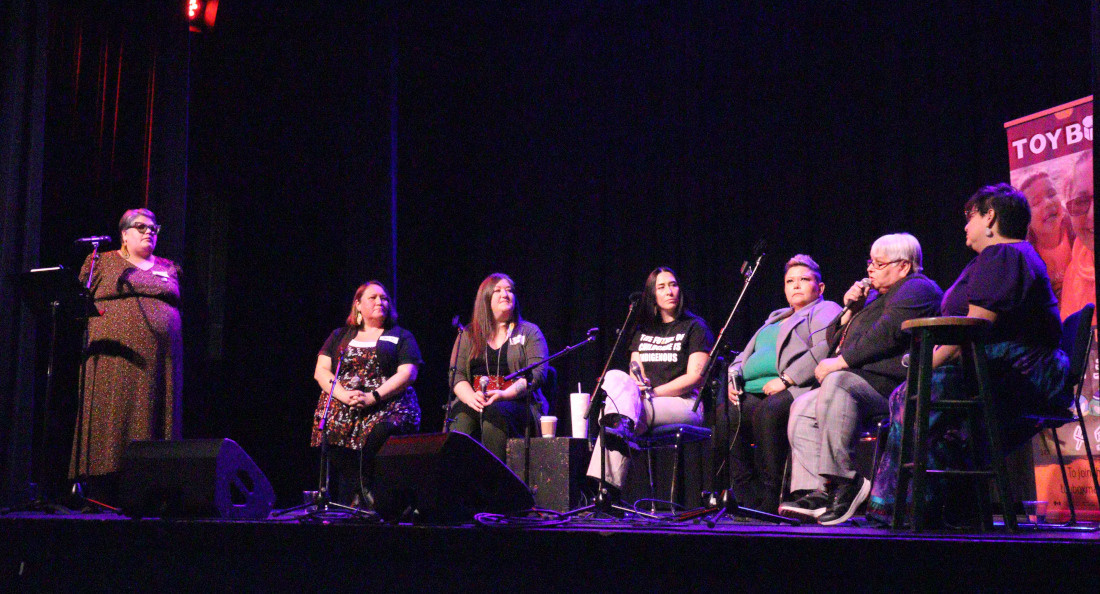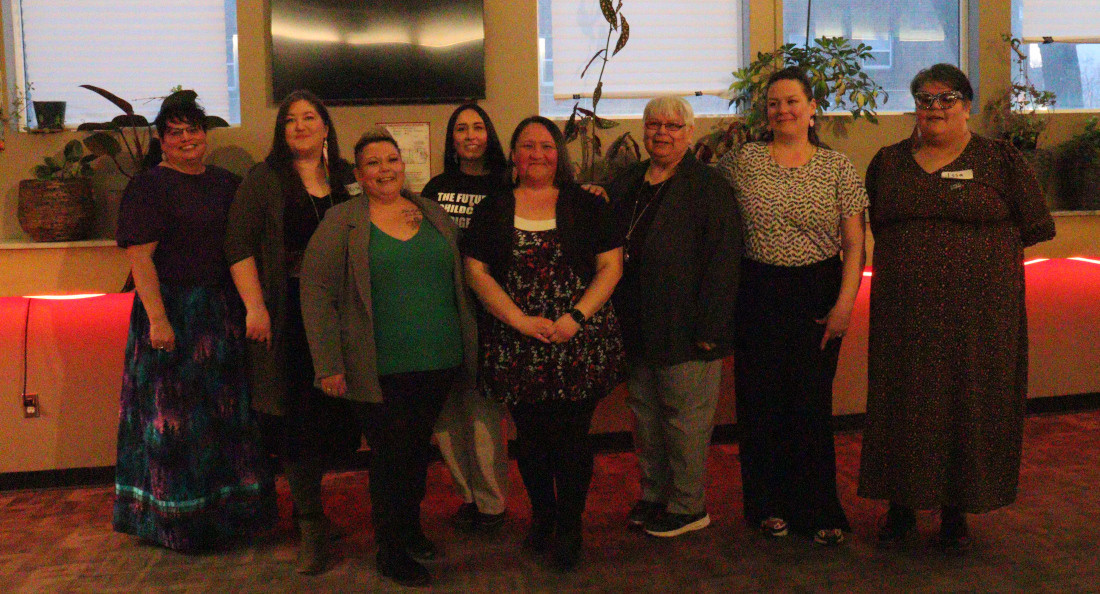The Uniter Speaker Series presents: A Conversation with Kisa MacIsaac
The future of early childhood education from an Indigenous perspective
As the old proverb says, it takes a village to raise a child. This was the main topic of discussion on March 30 at the West End Cultural Centre, which hosted the latest entry in the Uniter Speaker Series.
The special seminar, titled A Conversation with Kisa MacIsaac: The Future of Early Childhood Education from an Indigenous Perspective, was hosted by comedian Issa Kixen and organized by Uniter Speaker Series co-coordinator Jasmine Tara.
Kisa MacIsaac, an early childhood educator and artist, led a panel of students and childcare workers discussing the current landscape of early childhood education (ECE) and sharing stories about their real-life struggles and experiences in the field.
In addition to MacIsaac, the panel consisted of educator Rebecca LaRiviere, childcare worker Vivian Scott, early learning and childcare facilitator Robin Potter and elementary-school teacher Twila McKay.
They, along with the audience, discussed ways to dismantle the colonial structures put in place to keep Indigenous communities down and create a better system for youth based on love, respect and tradition.
MacIsaac, who has worked in ECE for 20 years, said her mother was her main inspiration to enter the field.
Thinking back on her mother’s experience growing up in the foster-care system in the 1960s, MacIsaac wondered, “How many thousands upon thousands of children have been removed from their families and home communities, and how many more have been raised in a place with the lack of love, belonging and the safety they require?”
“A lot of children have unique gifts to offer the world and deserve to have those gifts valued and nurtured,” she said.
MacIsaac also noted that ECE funding in Manitoba was frozen for several years, making it difficult to maintain a high level of quality for children.
LaRiviere took the stage, sharing her perspective on the state of ECE. She has spent most of her career learning from and working with Indigenous caregivers, promoting collaboration and professional development and advocating for the strengths that already exist in the community.
Her shirt, emblazoned with the slogan “The Future of Child Care is Indigenous,” echoed her work and beliefs. LaRiviere fondly remembered the educators who taught her during her early childhood years, calling them the most caring people in her life. She said she wanted to be exactly like them.
She spoke on Indigenous traditions in child rearing, their long history and their disruption, erasure and co-opting by colonization. One example she cited was “land-based education,” encouraging it as a method for Indigenous parents to help children get in touch with their roots.
“When you're thinking about how you can do Indigenous education, get them outside,” LaRiviere told the audience. “Children are of nature and from nature, and children are inherently spiritual. So you’re also supporting a child’s spiritual development just by letting them have their connection with the land.”
Children are wiser and more knowledgeable than people give them credit for, she said, by being more grounded to the spirit world. That spiritual connection helps break down the hierarchy between caregivers and their children.
Near the end of the seminar, the group of student panellists spent the rest of their stage time answering questions about themselves, their careers in ECE, the impacts they’ve made in their communities and how to guide more people in their own communities in Indigenous child-rearing traditions.
Published in Volume 77, Number 25 of The Uniter (May 9, 2023)









